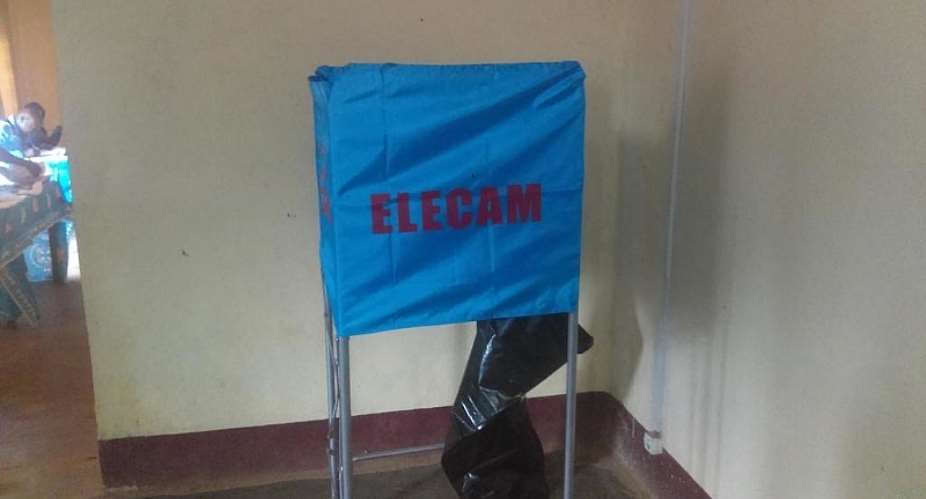A one-week lockdown imposed by separatists on the restive Anglophone regions of Cameroon coupled with restriction orders issued by the authorities is negatively affecting local businesses ahead of Sunday's local elections in the country.
With shuttered shops and empty streets, locals in the Anglophone region are finding it difficult to access basic services ahead of the 9 February elections.
Separatists in these communities have imposed a week-long lockdown in an effort to disrupt the electoral exercise.
Effect on communities from separatist lock-down
"I have a child in the house and she is not well. She had to eat something to drink her medicine. I went down there to buy her medicine, and there was no medicine," says a 38-year-old businesswoman in Bamenda who asked not to be named when speaking to RFI.
The business owner says she is unhappy with the lockdown and is also scared of armed men who want her to keep her business closed.
"I was supposed to go to my business site but no way, there's no security, so I'm afraid. Right now, because of this I'm eating gateaux,” she says, referring to the local name for the fried donuts. “It's not right. Am not used to eating gateaux," she adds.
Authorities impose shut-down
While it is normal for authorities to shut down businesses during an election, such decisions ultimately have a direct impact on the lives of the average Cameroonian.
"Businesses are grounded on this day and there's going to be substantial losses…These people generate [income] for their families on weekends,” says Francis Anu of the Cameroon Chamber of Commerce in Bamenda.
Coupled with the lockdown in the English-speaking areas, authorities have also restricted travel outside of urban areas or the same rural localities, closing the borders and ordering businesses to remain shut across the country.
"National borders shall be closed forty-eight hours to polling day. They shall be reopened the day after close of the polls," according to a statement from Cameroon's ministry of interior.
"Profit-making and gaming activities shall be closed on the polling day. The prohibition amongst others include drinking spots, shops, stores and markets," the statement adds.
English-speaking region
But many locals in the anglophone northwest city of Bamenda say these decisions are going to have adverse effects on their businesses.
"As a business person, we do most of our sales on Sundays, weekend days. With this type of situation we are going to lose customers, given that we are barely surviving during this crisis in Bamenda," a bar owner calling himself Elvis tells RFI.
Voting is expected to take place in the restive regions amid fears of violence. There is already a heavy military presence in the city of Bamenda with many security officers stationed at strategic positions within the city.
"The situation is terrifying, given that the military presence is everywhere and the city is not secured. There have been stories of torture, a series of arrests, and gunshots around the city, so am so scared," adds Elvis.
The current security challenges in the minority English-speaking areas of Cameroon has thrown into doubt the possibility of organising credible elections in these territories.
Though the authorities have frequently assured locals in these regions that adequate security measures would be put in place on polling day, it is likely that the turnout in the Anglophone communities will be at a record low.





 EOCO returns fire at OSP over Cecilia Abena Dapaah’s money laundering case
EOCO returns fire at OSP over Cecilia Abena Dapaah’s money laundering case
 We’ve not introduced 1% cybersecurity levy on banking transactions – BoG
We’ve not introduced 1% cybersecurity levy on banking transactions – BoG
 ‘Mahama not pleased with my work because I defeated him twice’ — Akufo-Addo
‘Mahama not pleased with my work because I defeated him twice’ — Akufo-Addo
 ‘I’ll control government spending when elected President’ — Bawumia
‘I’ll control government spending when elected President’ — Bawumia
 2024 elections: Elect a new leader if Bawumia fails in his first term — Miracles...
2024 elections: Elect a new leader if Bawumia fails in his first term — Miracles...
 2024 elections: Let Aduomi be if he won't return; just work hard — Prof. Osafo t...
2024 elections: Let Aduomi be if he won't return; just work hard — Prof. Osafo t...
 Multinational companies exiting Ghana worrying; it'll lead to job losses, deter ...
Multinational companies exiting Ghana worrying; it'll lead to job losses, deter ...
 Election 2024: Mahama will destroy my legacy if he wins, so, go out, register an...
Election 2024: Mahama will destroy my legacy if he wins, so, go out, register an...
 UE/R: Your 2-year 'bitterness' towards our members 'shameful' - Three teacher un...
UE/R: Your 2-year 'bitterness' towards our members 'shameful' - Three teacher un...
 'I'm not running for office for power; I just want to solve Ghana’s problems' — ...
'I'm not running for office for power; I just want to solve Ghana’s problems' — ...
